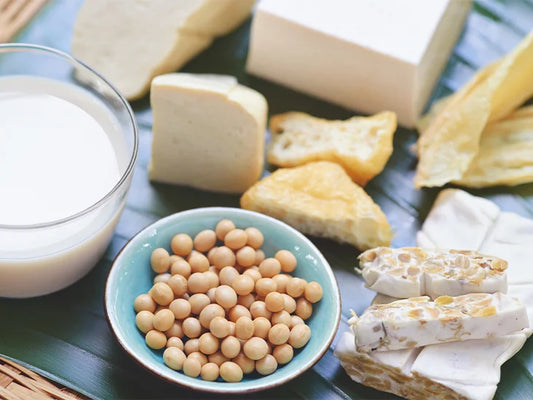Ramadan Skincare: Tips to Keep Your Skin Healthy During Fasting
Ramadan is a holy month for Muslims around the world. It is a time of spiritual reflection, self-discipline, and fasting. Fasting during Ramadan can have a significant impact on your body, including your skin. Dehydration, lack of sleep, and changes in diet can all affect the health and appearance of your skin. However, with a few simple tips and tricks, you can keep your skin healthy and glowing during the holy month.
Importance of Skincare during Ramadan
Fasting during Ramadan can take a toll on your skin. Dehydration is a common side effect of fasting, which can lead to dry skin, dullness, and dark circles. Lack of sleep can also affect your skin, causing puffiness and dark circles. Changes in diet can cause breakouts and other skin issues. That's why it's important to take extra care of your skin during Ramadan.
Skincare Tips for Ramadan
Here are some tips to help keep your skin healthy and glowing during Ramadan:
1. Hydrate, Hydrate, Hydrate
Drinking plenty of water is essential during Ramadan. Aim to drink at least 8-10 glasses of water per day to keep your skin hydrated. Dehydration can cause dryness, dullness, and dark circles, so make sure you're drinking enough water to keep your skin looking healthy and radiant.
2. Moisturize
Moisturizing is important during Ramadan, especially if you have dry skin. Use a moisturizer that is suitable for your skin type and apply it twice a day – once in the morning and once at night. This will help keep your skin hydrated and prevent dryness.
3. Avoid Hot Showers
Taking hot showers or baths can strip your skin of its natural oils and cause dryness. Instead, take lukewarm showers and avoid staying in the shower for too long. After showering, pat your skin dry with a towel instead of rubbing it.
4. Stick to a Skincare Routine
Stick to a skincare routine during Ramadan to keep your skin healthy and glowing. Cleanse, tone, and moisturize your skin twice a day – once in the morning and once at night. This will help remove dirt and oil from your skin and keep it hydrated.
5. Use Sunscreen
Even though you may not be spending as much time outdoors during Ramadan, it's still important to use sunscreen. Apply a broad-spectrum sunscreen with an SPF of at least 30 every day, even if you're staying indoors. This will help protect your skin from the harmful effects of the sun.
6. Avoid Makeup
Avoid wearing heavy makeup during Ramadan, as it can clog your pores and cause breakouts. If you must wear makeup, choose lightweight, oil-free products that won't clog your pores.
FAQs
Q: Can fasting cause acne?
A: Yes, changes in diet and dehydration can cause acne during Ramadan. That's why it's important to take extra care of your skin during the holy month.
Q: Can I use face masks during Ramadan?
A: Yes, you can use face masks during Ramadan. However, make sure to choose a mask that is suitable for your skin type and won't cause irritation.
Q: How can I reduce dark circles during Ramadan?
A: Getting enough sleep and staying hydrated can help reduce dark circles during Ramadan. You can also use a cold compress or cucumber slices to reduce puffiness and dark circles.
Q: Can I use retinol during Ramadan?
A: It's best to avoid using retinol during Ramadan, as it can cause dryness and sensitivity. Instead, stick to a gentle skincare routine that includes cleansing, toning, and moisturizing.
In conclusion, taking care of your skin during Ramadan is important to keep it healthy and glowing. Follow these skincare tips and tricks to maintain your skin's health and beauty during the holy month.













